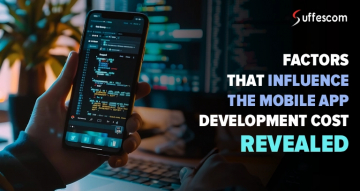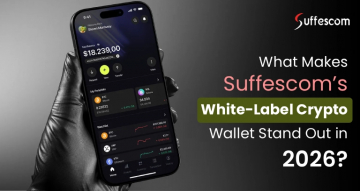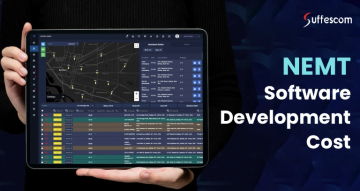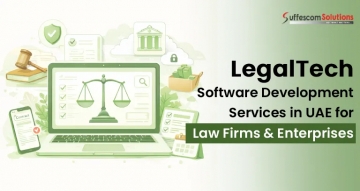How Much Does iGaming Software Development Cost?

The iGaming industry didn’t just evolve - it reinvented the rules of engagement.
Back in the day? It was all about just eye-catching visuals and basic random number generators.
Now? We’re talking AI-powered game engines, blockchain-backed transparency, metaverse casinos, and real-time data analytics - all customized for serious B2B players who want scalable, secure, and future-proof platforms.
Thinking about launching your own iGaming platform but unsure about the budget? You’re not alone. One of the first questions businesses ask is: How much is this going to iGaming software development cost me? Whether you're aiming for a basic setup or a feature-rich platform, the iGaming software development price can vary widely.
Acc. to Statistics the global sports betting market is projected to reach $182.12 billion by 2030, growing at a compound annual growth rate (CAGR) of 10.3%.
The answer isn’t one-size-fits-all - it depends on what you're building, how customized it is, and what kind of features you're aiming for. Let’s break down what really goes into the price tag of iGaming software, and help you figure out what makes the most sense for your vision.
The iGaming software development market is no longer just about creating games - it's about building ecosystems that can support thousands of concurrent users, handle complex payments, offer global compliance, and deliver immersive user experiences.
Today, the demand for custom iGaming platforms is skyrocketing. White-label solutions? Rapid go-to-market. Bespoke software? Unmatched control and innovation.
For B2B enterprises, it's not just a game anymore.
It’s a race to own the next big platform in digital gambling.
Note - This Post is only for App and Software Development
We are an IT company, offering casino or gambling app and software development services only.
What Influences the iGaming Software Cost?
Several key factors drive the overall cost of developing iGaming software. These include the type of platform (casino, sportsbook, fantasy sports), complexity of features (live betting, payment integrations, multiplayer), tech stack used, and level of customization required. Regulatory compliance, security protocols, and third-party API integrations can also significantly impact pricing.
Custom vs. White Label Solutions: Which Impacts Price More?
Choosing between custom development and a white label Casino app? It’s a bit like deciding whether to build your dream home from the ground up or move into a stylish, ready-to-live apartment.
With custom iGaming software, you get full creative control - from unique gameplay features to a fully branded user experience. It’s ideal for businesses that want to stand out and scale big. But with that freedom comes a higher development cost and a longer launch timeline.
On the flip side, a White label sports Betting app is your fast-track option. It’s cost-effective, quick to deploy, and comes with built-in functionalities. Perfect if you’re looking to enter the market quickly without the hassle of building everything from scratch - though customization options may be limited.
So, which impacts price more? Custom builds tend to cost more upfront but offer long-term brand value. White label solutions are budget-friendly but come with trade-offs in flexibility and uniqueness.
How Much Does It Cost to Build iGaming Software?
Let’s be real - when it comes to iGaming software development, there’s no one-size-fits-all answer. But we can break it down to give you a clear picture of what really goes into the cost - and where your money goes.
The iGaming Software Price Breakdown
| Development Type | Estimated Cost Range |
| Basic Slot Game | $10,000 – $12,000 |
| Table Games (Poker, Blackjack, etc.) | $10,000 – $25,000 |
| Sports Betting Software | $20,000 – $50,000 |
| White Label Casino App | $8,000 – $15,000 |
| Custom iGaming Platform | $15,000 – $40,000 |
Quick Insight: Choosing white-label solutions can cut costs by up to 60%, but custom development gives you full control and branding power.
Building an iGaming platform isn’t just about cost - it’s about investment. Whether you’re starting small or going big with a custom-built ecosystem, understanding these cost layers helps you plan smartly with lots of benefits, which will help you in the future.
Get The Cost Estimation of iGaming Software Development
Types of iGaming Platforms and Their Development Costs
Building an iGaming platform isn't a one-size-fits-all investment - it varies based on the type of game, complexity, tech stack, and level of customization. Below is a detailed breakdown of popular iGaming platform types and their estimated development costs:
Slot Game Solutions Price ($10,000 - $25,000+)
Slot games are a staple in the iGaming industry, known for their engaging graphics, reels, paylines, and bonus features.
Cost Drivers:
- Custom animations & sound effects
- RNG (Random Number Generator) integration
- Progressive jackpot systems
- Multi-device compatibility
Ideal for businesses looking to launch fast, visually appealing games with high player engagement.
Lottery Game Solutions Cost ($10,000 - $20,000+)
Online lottery games simulate real-world lotteries with draw-based or instant-win mechanics.
Cost Drivers:
- Backend ticketing system
- Real-time result generation
- Compliance with local gaming laws
- Wallet & payment gateway integration
Perfect for operators entering the casual gaming or national lottery segment.
Table Game Development Cost ($10,000 - $20,000+)
This category includes classic games like Blackjack, Baccarat, and Craps.
Cost Drivers:
- Real-time multiplayer features
- Game physics and logic algorithms
- AI opponent modeling
- Live dealer or virtual dealer support
A go-to choice for traditional casino fans.
Card Game Development Cost ($10,000 - $20,000+)
Card games such as Poker, Rummy, or Teen Patti require strong server-side logic and fair gameplay mechanics.
Cost Drivers:
- Real-time multi-table gameplay
- Tournament functionality
- Anti-cheating & fraud prevention
- In-game chat & social features
Card games are ideal for engagement-driven platforms with long-term retention in mind.
Roulette Game Development Cost ($15,000 - $25,000)
Roulette combines chance with excitement, attracting both novice and pro players.
Cost Drivers:
- 2D/3D wheel animations
- Betting system mechanics
- Real-time multiplayer support
- Live dealer integration (optional)
A classic casino option that adds instant variety to any platform.
Fantasy Sports Platform Cost ($15,000 - $30,000+)
Fantasy sports platforms enable users to build virtual teams and earn points based on real-time player performance.
Cost Drivers:
- Real-time data APIs (sports stats & scores)
- Drafting & team management systems
- Leaderboards & reward structures
- Legal & regional fantasy compliance
Popular in regions like the US and India, especially during sports seasons.
Horse Racing Betting Game Cost ($15,000 - $30,000)
This betting format mimics real-world horse races, appealing to niche yet loyal audiences.
Cost Drivers:
- Race simulation or live-streaming integration
- Betting odds algorithm
- Payout and result calculation engines
- Virtual jockeys and 3D animation
An evergreen option for sportsbooks or hybrid casino platforms.
Key Factors That Influence Online Gambling Software Development Cost
Understanding the online gambling software development cost means evaluating various influencing factors that directly shape pricing - from business models to tech complexity. Here's a detailed breakdown:
Engagement Models and Their Impact on iGaming Software Cost
The iGaming software development cost significantly depends on your chosen engagement model:
- Fixed Price Model provides best for startups with a defined scope it should be predictable, but less flexible.
- Dedicated Team Model provides Ideal for growing enterprises it should be Scalable, agile, and long-term.
- Time & Material Model provides great for evolving requirements, it should be paid as you go.
Each model alters the cost trajectory and impacts development time.
iGaming Software Price Comparison — Startup vs. Enterprise
| Business Size | Average Budget Range | Development Focus |
| Startup | $10,000 – $30,000 | MVP, basic games, quick go-to-market |
| Enterprise | $50,000 – $60,000 | Full suite, custom modules, integrations |
Startups opt for budget-friendly builds, while enterprises invest in robust, scalable systems with high-end security and performance.
How Tech Stack Impacts the Cost of iGaming Platform Development
Your tech stack - the backend language, database, front-end framework, and integrations - adds layers to the gambling software development cost.
- Simple Tech (e.g., PHP + MySQL): Cost-effective but limited scalability.
- Modern Stack (e.g., Node.js, React, PostgreSQL): More expensive, scalable, and feature-rich.
- Advanced Features (e.g., Blockchain, AI, VR): Can significantly raise costs but future-proof your platform.
Type of Game/Platform
Different game genres have different complexity levels, directly impacting the online gambling software development cost:
- Slot, Table, or Card Games: ~$10,000 – $25,000
- Fantasy Sports: $20,000 – $50,000+
- Live Casino or Multiplayer Games: $30,000 – $100,000+
The more logic and real-time interaction required, the higher the price tag.
Game Design and UI/UX
Design isn't just about visuals — it's your user’s first impression and affects retention. Better design = more cost, but also more engagement.
- Basic UI/UX: Minimalist, easy to build.
- High-end UI with animations & responsive design: Time-intensive and more costly.
Game Complexity
Complexity scales your project both in terms of resources and timeline:
- Basic: Single-player, static odds, limited UI
- Medium: Dynamic odds, chat, profile system
- Complex: Multiplayer logic, real-time leaderboards, third-party APIs
Backend Development
The server-side determines your platform’s security, scalability, and performance — all crucial for real-money gaming platforms.
Key components:
- Wallet system
- Payment gateway integrations
- Admin control panel
- Real-time analytics dashboard
These backend systems can represent up to 40% – 50% of the total iGaming software development price.
What Else Impacts Your iGaming Development Budget?
Third-party integrations and supporting features are silent drivers of the overall iGaming software development cost. These elements don't just enhance functionality - they also increase technical complexity, compliance overhead, and development time.
It is Depends on the features which mentioned in the below:
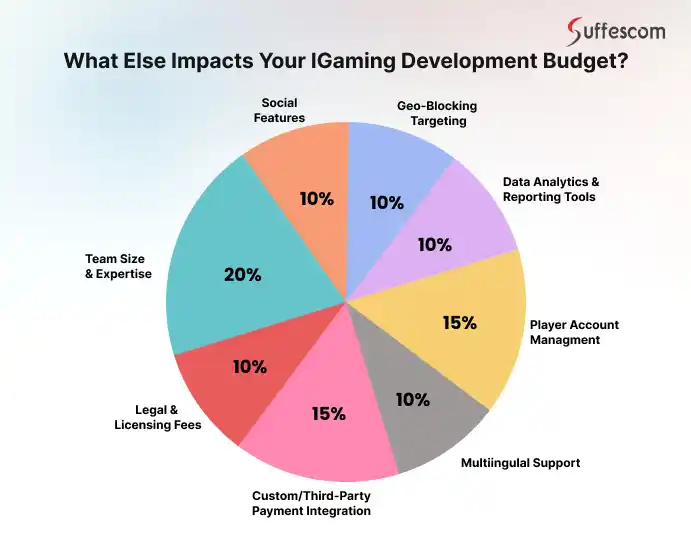
Multilingual & Localization Support
Targeting global audiences? Then multilingual support and cultural localization (UI/UX changes) are essential.
- Adds translation layers and localized UI adjustments.
- Often involves content adaptation, regional game rules, and more.
Legal & Licensing Costs
Compliance with international gambling laws and licensing varies by country or state.
- Includes Know Your Customer (KYC) modules, AML policies, and certifications.
- Jurisdiction-specific legal requirements (e.g., Curacao vs. Malta).
Team Size & Expertise
A larger or more skilled team equals faster development - but at a higher gambling software development cost.
- 50 - 60 developers for MVPs
- 60 - 150 Senior engineers & architects for enterprise-grade platforms
Social Gaming Features
Adding chat, friend invites, tournament sharing, or leaderboards boosts engagement but increases the complexity of backend logic.
- Requires moderation tools, real-time APIs, and community algorithms.
Player Account Management Systems
Essential for tracking users, deposits, withdrawals, game progress, and bonuses.
- Requires high-level security and GDPR compliance.
- Involves dashboards, CRM modules, and user segmentation.
Data Analytics & Reporting Tools
Monitoring KPIs like retention, churn rate, ARPU, and real-time behavior analytics requires third-party tools or custom dashboards.
- Helps operators refine their strategy.
- Often involves Big Data integrations.
Geo-Blocking & Geo-Targeting Functionalities
These are critical for regional compliance, content personalization, and promotional targeting.
- Blocks or modifies access based on a user's region.
- Supports legal compliance in restricted territories.
Custom vs. Third-Party Payment Gateway Integration
Whether you integrate a third-party service like PayPal, Skrill, or go for a custom crypto wallet, the complexity and cost vary.
- Third-party payment gateways: Faster, moderately priced.
- Custom wallets or blockchain-based payments: More secure, but expensive to build.
Launch Your iGaming Software Under Budget
Final Thoughts
Building a successful iGaming platform goes far beyond just game development. From your engagement model and tech stack to third-party integrations and feature complexity - each decision directly shapes your overall iGaming software development cost.
Whether you're launching a MVP casino or scaling an enterprise-level platform, understanding these key cost factors will help you make smarter, budget-conscious decisions. Integrations like payment gateways, multilingual support, player management, and analytics aren't just add-ons - - they're essential tools for compliance, engagement, and growth.
The bottom line? The right investment isn’t always the cheapest - it’s the most scalable, secure, and future-ready for your target audience.
If you're ready to turn your vision into a winning platform, choose a development partner who understands the balance between quality, features, and budget.
Let us help you build your iGaming success - the smart way.
FAQ:
1. What is the average iGaming software development cost?
The average cost to develop an iGaming platform ranges from $10,000 to $60,000, depending on features, game types, tech stack, and third-party integrations.
2. Which factors influence online gambling software development cost the most?
Key factors include:
Type of games (slots, poker, fantasy, etc.)
- Engagement model (fixed-price vs. dedicated team)
- Technology stack used
- UI/UX complexity
Third-party modules like payment gateways, analytics, and multilingual support
3. How much does it cost to build a fantasy sports or horse racing betting game?
Fantasy sports platforms typically cost between $20,000 and $50,000+, while horse racing betting games range from $15,000 to $30,000, depending on real-time data integration and simulation complexity.
4. What’s the difference in cost between startup and enterprise iGaming platforms?
Startups can expect to invest around $10,000 to $30,000, focusing on MVPs and essential features. Enterprise solutions range from $50,000 to $60,000, covering advanced tech, scalability, and compliance.
5. Is white-label casino software more affordable than custom development?
Yes. White-label iGaming solutions are generally faster and cheaper to launch, but they offer less control and customization compared to fully custom-built platforms.
